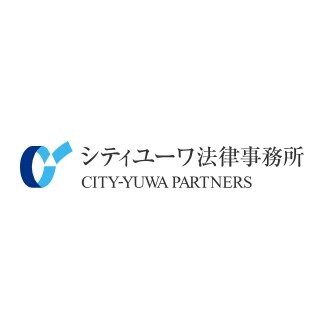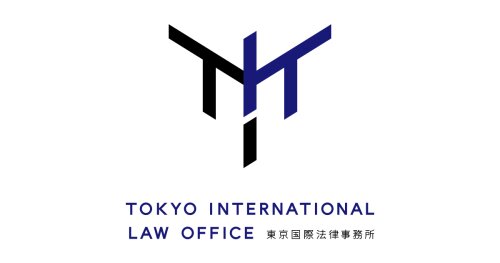Best Renewable & Alternative Energy Lawyers in Japan
Share your needs with us, get contacted by law firms.
Free. Takes 2 min.
Or refine your search by selecting a city:
List of the best lawyers in Japan
About Renewable & Alternative Energy Law in Japan
Renewable and alternative energy refers to energy that is derived from sources that are naturally replenished, such as solar, wind, geothermal, biomass, and hydroelectric power. In recent years, Japan has placed a strong emphasis on developing its renewable energy sector, especially following the 2011 Fukushima Daiichi nuclear disaster. The Japanese government has implemented a variety of laws, incentives, and initiatives to promote cleaner, more sustainable energy sources and to reduce reliance on imported fossil fuels. The legal and regulatory environment in this field is constantly evolving, making it essential for businesses and individuals to stay informed about the latest developments.
Why You May Need a Lawyer
There are several situations where a legal professional can be invaluable in the renewable and alternative energy sector in Japan. Some common scenarios include:
- Establishing a new renewable energy project, such as a solar or wind power plant, which involves navigating complex regulations and permitting processes
- Negotiating contracts for the purchase, sale, or financing of renewable energy assets
- Understanding and complying with Japan's various incentive programs, including feed-in tariffs and tax benefits
- Managing disputes between project stakeholders, landowners, government agencies, or contractors
- Protecting intellectual property related to renewable energy technologies
- Addressing environmental, zoning, and land use issues related to project development
- Ensuring ongoing regulatory compliance and managing changes in the legal landscape
Local Laws Overview
Japan has a well-developed legal system for renewable and alternative energy. Key aspects include:
- Feed-in Tariff Program (FIT): This system, introduced in 2012, mandates utilities to purchase electricity generated from renewable sources at fixed prices for set periods. The FIT has driven significant investment in solar and wind power, though recent years have seen modifications to ensure sustainability and cost control.
- Renewable Energy Special Measures Law: This legislation establishes frameworks and guidelines to encourage the use of renewable resources, streamline approval processes, and outline the responsibilities of energy producers.
- Environmental Impact Assessment (EIA): Large renewable energy projects, especially wind and geothermal plants, may require thorough environmental reviews before receiving approval.
- Zoning and Land Use Laws: Local governments have authority over land use, making it important to work within regional regulations that may affect where and how energy projects are developed.
- Grid Connection Rules: Rules for connecting renewable energy installations to the national grid are tightly regulated to ensure safety, reliability, and fair access.
- Recent Reforms: Ongoing updates to legislation aim to integrate more renewables, liberalize the electricity market, and shift towards a carbon-neutral society by 2050.
Frequently Asked Questions
What is Japan's feed-in tariff system and how does it work?
Japan's feed-in tariff system obliges utilities to purchase electricity generated by approved renewable sources at fixed rates for a set term, providing stability and predictability for investors. Rates and terms vary by technology and project size, and are reviewed periodically.
Do I need government approval to start a renewable energy project?
Yes, most renewable energy projects, particularly larger ones, require various permits and approvals from both national and local authorities. These can include environmental assessments, land use permissions, and grid connection agreements.
Are there incentives for individuals to install solar panels on homes?
Yes, individuals may benefit from subsidies, tax deductions, and the ability to sell surplus electricity from residential solar panels back to the grid under the feed-in tariff scheme, though rates for new installations are less generous than in the early years of the program.
How does land zoning affect renewable energy projects?
Because land use in Japan is tightly controlled, you must ensure that your project location is zoned appropriately for energy installations. Securing approval may involve consultations with municipal authorities and public hearings.
Can foreign companies invest in or operate renewable energy businesses in Japan?
Yes, foreign companies are welcome to participate in Japan's renewable energy sector, though they must comply with the same regulatory requirements as domestic entities, including company registration and obtaining necessary permits.
What environmental regulations apply to renewable energy projects?
Projects may be subject to the Environmental Impact Assessment Law, which requires detailed studies and public consultations before approval. Smaller projects may be exempt, but strict rules often apply to wind, geothermal, and large solar developments.
How is energy from renewables integrated into the national grid?
The government regulates grid connections to ensure safe, reliable integration of renewables. There may be limitations or curtailment in areas where the grid is congested, and upgrades may be needed at the developer's expense.
What happens if there is a dispute about a renewable energy project?
Legal disputes may arise over contracts, land rights, or regulatory compliance. These are typically resolved through negotiation, mediation, or litigation in Japanese courts. Specialized dispute resolution services are sometimes available for energy sector matters.
Are there specific tax incentives for renewable energy investments?
Yes, various tax incentives exist for renewable energy investments, such as accelerated depreciation and reduced property taxes, though these often change annually and may be subject to certain conditions and caps.
What are Japan's long-term goals for renewable energy?
Japan aims to achieve carbon neutrality by 2050 and significantly increase the share of renewables in its energy mix. Key policies support the expansion and integration of solar, wind, geothermal, and biomass power while phasing out fossil fuel dependence.
Additional Resources
If you need more information or guidance, consider consulting the following organizations and bodies:
- Ministry of Economy, Trade and Industry (METI): The central government agency responsible for energy policy, regulation, and incentives.
- Agency for Natural Resources and Energy: A METI-affiliated body focusing on energy security, renewables, and efficiency.
- Japan Renewable Energy Foundation (JREF): Provides research, advocacy, and policy analysis on renewables in Japan.
- Japan Wind Power Association / Japan Photovoltaic Energy Association: Industry groups offering technical and regulatory guidance.
- Prefectural and municipal government offices: Handle local permitting, zoning, and approvals for renewable projects.
- Qualified Japanese law firms: Many firms now offer specialized legal services in renewable and alternative energy law.
Next Steps
If you require legal advice or assistance with a renewable or alternative energy matter in Japan, consider the following steps:
- Gather all relevant project information, including business objectives, site details, financial plans, and any current approvals or applications.
- Identify your key concerns, whether regulatory compliance, contracts, zoning, partnerships, or dispute resolution.
- Contact a law firm or legal expert with experience in Japanese energy law and renewable projects. Many offer initial consultations.
- Prepare specific questions ahead of any meeting to make the most of your time and to clarify your project's legal requirements.
- Keep updated on legal changes by subscribing to industry news or joining relevant organizations.
- Document all agreements and communications with partners, authorities, and service providers.
Lawzana helps you find the best lawyers and law firms in Japan through a curated and pre-screened list of qualified legal professionals. Our platform offers rankings and detailed profiles of attorneys and law firms, allowing you to compare based on practice areas, including Renewable & Alternative Energy, experience, and client feedback.
Each profile includes a description of the firm's areas of practice, client reviews, team members and partners, year of establishment, spoken languages, office locations, contact information, social media presence, and any published articles or resources. Most firms on our platform speak English and are experienced in both local and international legal matters.
Get a quote from top-rated law firms in Japan — quickly, securely, and without unnecessary hassle.
Disclaimer:
The information provided on this page is for general informational purposes only and does not constitute legal advice. While we strive to ensure the accuracy and relevance of the content, legal information may change over time, and interpretations of the law can vary. You should always consult with a qualified legal professional for advice specific to your situation.
We disclaim all liability for actions taken or not taken based on the content of this page. If you believe any information is incorrect or outdated, please contact us, and we will review and update it where appropriate.
Browse renewable & alternative energy law firms by city in Japan
Refine your search by selecting a city.

















